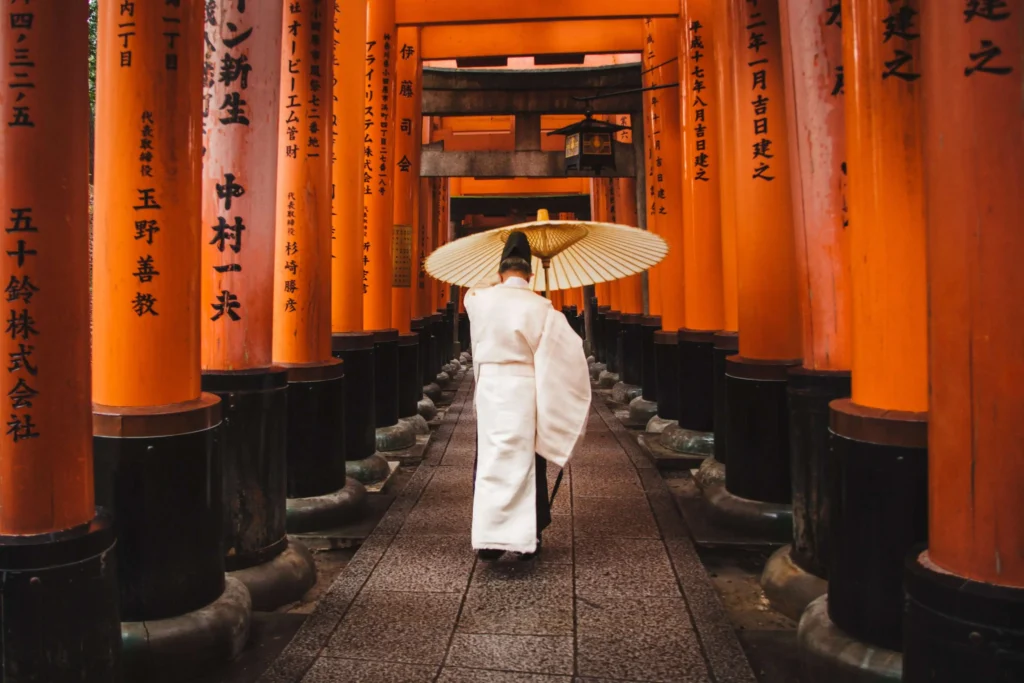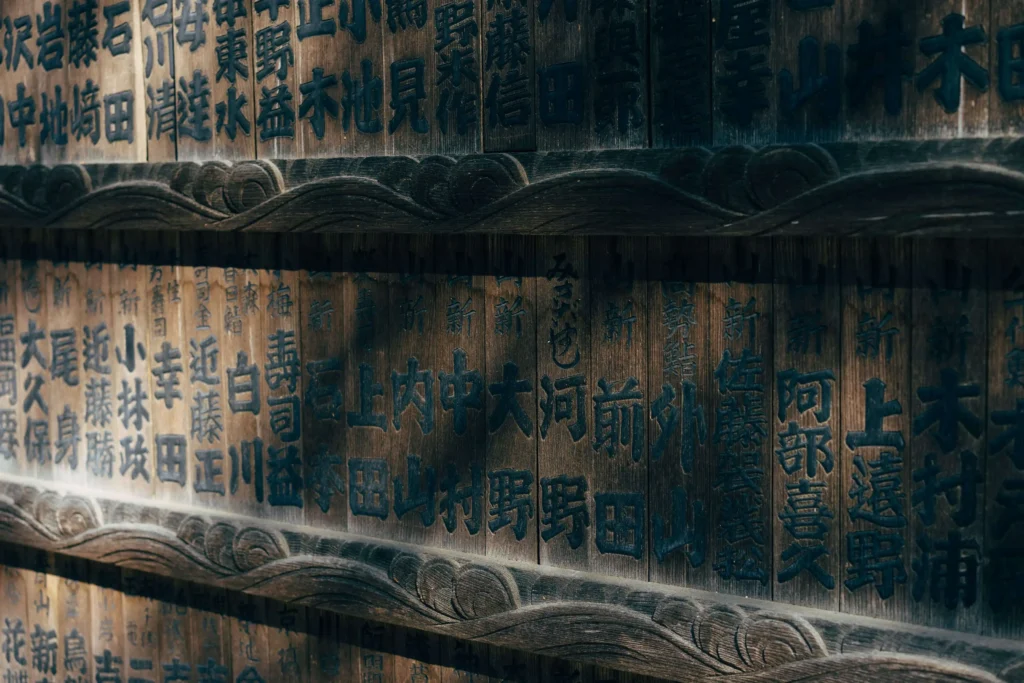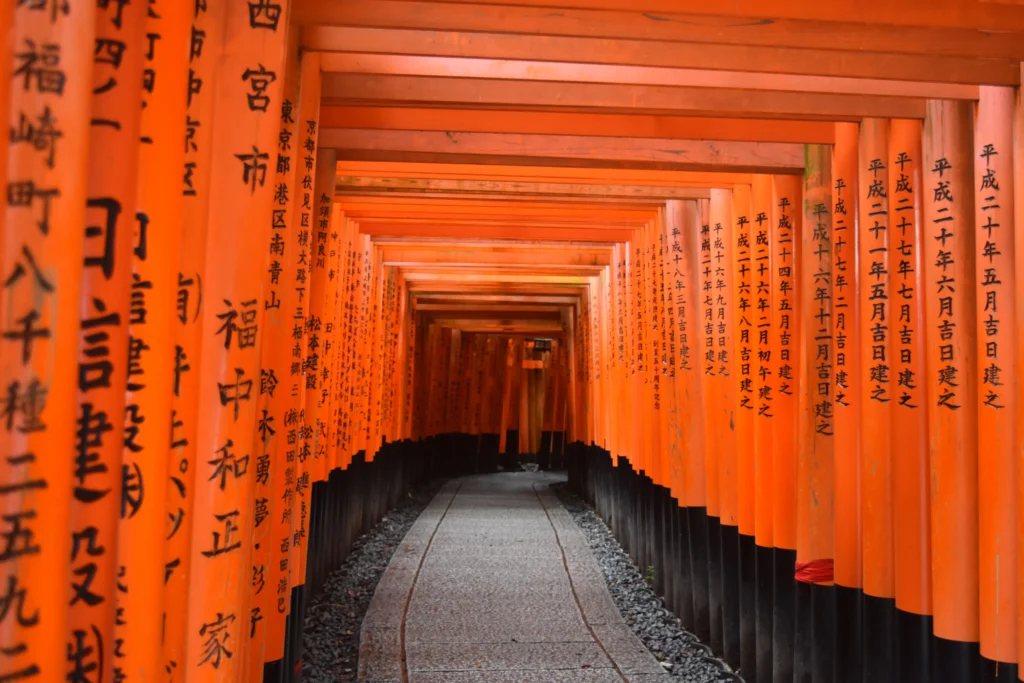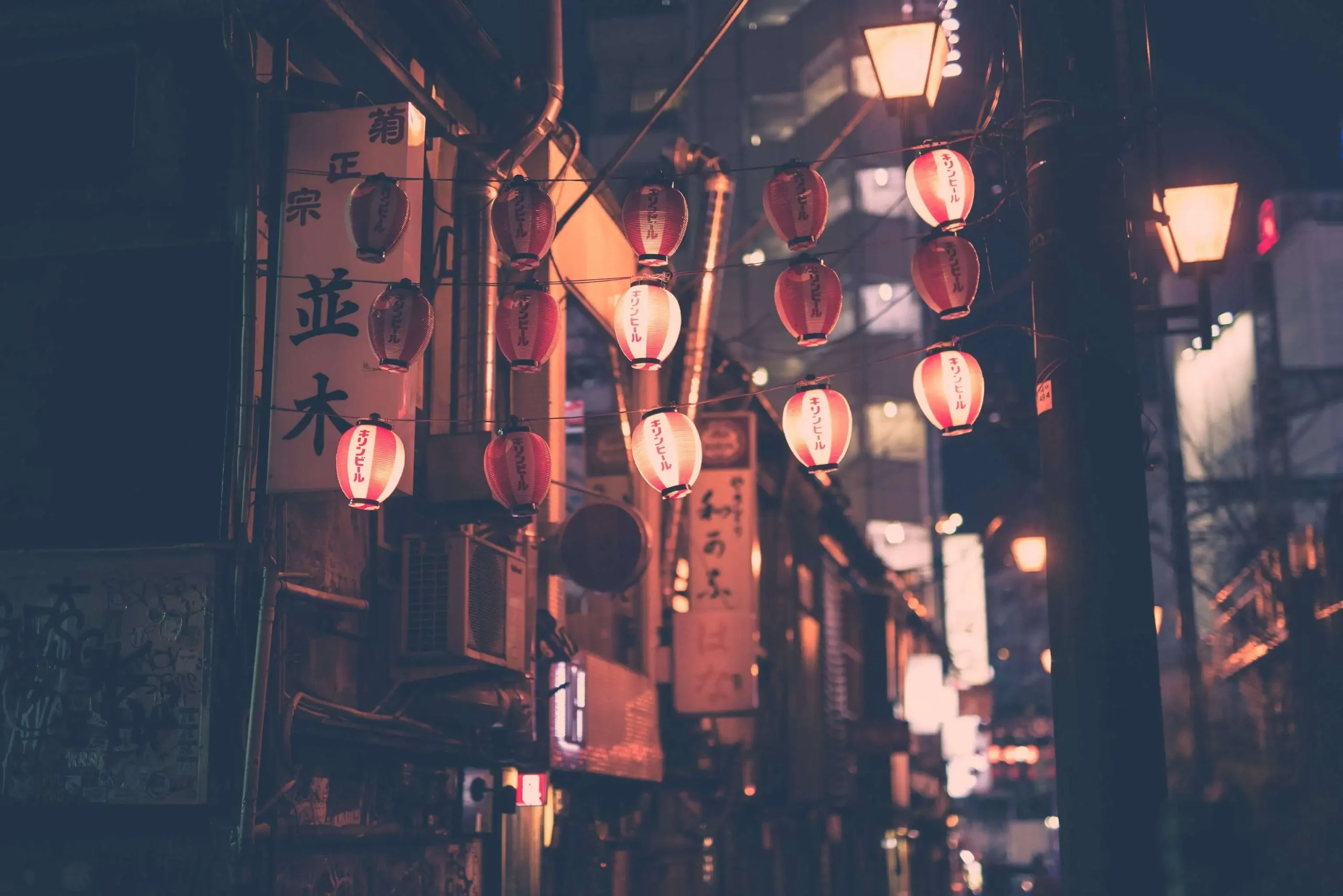Japanese ultimate names, which are sometimes referred to as own family names or surnames, have deep cultural significance and a wide range of meanings.
Some names stick out in this tapestry because of their sinister or menacing connotations, which speak to a broader problem with Japanese recordings and society.
We will explore the intriguing world of 50 Japanese last names with dark meanings in this investigation, providing light on their historical context, cultural significance, and meanings.
Understanding Japanese Last Names

Japanese last names, also known as surnames, play a significant role in identifying individuals within Japanese society.
These names are deeply rooted in the country’s history, reflecting various aspects such as occupations, geographic features, and familial connections.
Historical Background
Japanese last names, often known as “own family names” or “surnames” in English, have a rich history that spans several centuries.
They were not commonly used until the Meiji Period (1868–1912), when the government required surname adoption in order to establish a more unified administrative structure. Until recently, last names were frequently associated with distinguished families or noble ancestries.
Kanji Characters
The use of kanji characters in Japanese Last names with dark meanings is one of its distinctive characteristics.
Kanji are logographic characters that were taken from Chinese characters; depending on the context, they can have multiple readings and meanings.
Typically, one or more kanji characters are used to write last names, and each one has a unique meaning.
Role in Name Meanings
Japanese last names frequently contain kanji characters that have meanings related to the natural world, particular professions, places, or ties to one’s family.
The kanji for “mountain” and “base” or “root,” for example, are combined in the surname “Yamamoto” (山本), suggesting a link to a mountainous area or a well-known family.
Cultural Significance

Japanese society places great cultural value on last names. They function as markers of place of origin, social standing, and familial ancestry.
Despite the occasional instance of matrilineal inheritance or adoption, family names are normally inherited patrilineally, meaning they are passed down from father to children.
Surname Order
In Japanese culture, the surname traditionally comes earlier than the given name, unlike in Western cultures in which the given name precedes the surname.
This reflects the emphasis on collective identity and own family lineage in Japanese society.
Diversity and Complexity
Japanese last names with dark meanings are incredibly complicated and diverse, with many amazing surnames associated with lifestyles.
Certain names are uncommon and exclusive to certain regions or ancestries, while others are popular and widely used. The difficulty of remaining Japanese names is further increased by differences in pronunciation and writing styles.
It takes an understanding of the historical background, linguistic quirks, and cultural significance of Japanese final names to fully comprehend them.
Through investigating the names’ histories and connotations, we gain invaluable knowledge about Japanese culture, identity, and history.
Explore the rules and traditions behind Japanese names
50 Japanese Last Names with Dark Meanings Girls and Boys

Japanese last names with dark meanings provide a fascinating window into the complex web of language and symbolism that is woven throughout Japanese society.
Carefully created from kanji characters, each name has a specific meaning and often conjures up images of mystery, suspense, and terror.
Here are the best 50 Japanese last names with dark meanings found by our writers:
1. Akuma (悪魔)
- Pronunciation: ah-koo-mah
- Indication: Devil or demon
2. Yami (闇)
- Pronunciation: yah-mee
- Indication: Darkness or shadows
3. Kuroi (黒い)
- Pronunciation: koo-roh-ee
- Indication: Black or dark-colored
4. Shinigami (死神)
- Pronunciation: shee-nee-gah-mee
- Indication: God of death or Grim Reaper
5. Kage (影)
- Pronunciation: kah-geh
- Indication: Shadow or silhouette
6. Kurayami (暗闇)
- Pronunciation: koo-rah-yah-mee
- Indication: Deep darkness or gloom
7. Yurei (幽霊)
- Pronunciation: yoo-reh-ee
- Indication: Ghost or spirit
8. Onryo (怨霊)
- Pronunciation: on-ryoh
- Indication: Vengeful spirit or grudge ghost
9. Akumu (悪夢)
- Pronunciation: ah-koo-moo
- Indication: Nightmare or bad dream
10. Kuroishi (黒石)
- Pronunciation: koo-roh-ee-shee
- Indication: Black stone or dark rock
11. Kurayami (暗闇)
- Pronunciation: koo-rah-yah-mee
- Indication: Darkness or obscurity
12. Yamiuchi (闇打ち)
- Pronunciation: yah-mee-oo-chee
- Indication: Striking in darkness
13. Kurobara (黒薔薇)
- Pronunciation: koo-roh-bah-rah
- Indication: Black rose
14. Yamihei (闇兵)
- Pronunciation: yah-mee-heh-ee
- Indication: Dark warrior or soldier
15. Kuragari (暗かり)
- Pronunciation: koo-rah-gah-ree
- Indication: Dark or dim light
16. Yaminohako (闇の箱)
- Pronunciation: yah-mee-noh-hah-koh
- Indication: Box of darkness
17. Kurokawa (黒川)
- Pronunciation: koo-roh-kah-wah
- Indication: Black river
18. Akujiki (悪食)
- Pronunciation: ah-koo-jee-kee
- Indication: Evil appetite or gluttony
19. Kurohane (黒羽)
- Pronunciation: koo-roh-hah-neh
- Indication: Black feather or wing
20. Yamiakari (闇灯り)
- Pronunciation: yah-mee-ah-kah-ree
- Indication: Dim light in darkness
21. Kurayami (暗やみ)
- Pronunciation: koo-rah-yah-mee
- Indication: Murkiness or dimness
22. Yaminohi (闇の日)
- Pronunciation: yah-mee-noh-hee
- Indication: Day of darkness or gloomy day
23. Kurohoshi (黒星)
- Pronunciation: koo-roh-hoh-shee
- Indication: Black star or dark celestial body
24. Akuryo (悪霊)
- Pronunciation: ah-koo-ryoh
- Indication: Evil spirit or ghost
25. Yamiakari (闇明かり)
- Pronunciation: yah-mee-ah-kah-ree
- Indication: Flickering light in darkness
Check Out 40 Japanese Girl Names With Dark Meanings
26. Kuragari (暗闇)
- Pronunciation: koo-rah-gah-ree
- Indication: Darkness or gloom
27. Yamiuchi (闇打ち)
- Pronunciation: yah-mee-oo-chee
- Indication: Striking in darkness
28. Akuro (悪路)
- Pronunciation: ah-koo-roo
- Indication: Evil path or road
29. Kageboushi (影法師)
- Pronunciation: kah-geh-boh-shee
- Indication: Silhouette or shadow figure
30. Yureizuru (幽霊鶴)
- Pronunciation: yoo-reh-ee-zoo-roo
- Indication: Ghostly crane
31. Akuryu (悪流)
- Pronunciation: ah-koo-ryoo
- Indication: Evil current or stream
32. Kuronendo (黒燃堂)
- Pronunciation: koo-roh-nen-doh
- Indication: Black burning temple
33. Yamiwaga (闇わが)
- Pronunciation: yah-mee-wah-gah
- Indication: My darkness or gloominess
34. Kurobakari (黒ばかり)
- Pronunciation: koo-roh-bah-kah-ree
- Indication: Only black or entirely dark
35. Akurei (悪霊)
- Pronunciation: ah-koo-ray
- Indication: Evil spirit or ghost
36. Yamiakuma (闇悪魔)
- Pronunciation: yah-mee-ah-koo-mah
- Indication: Dark devil or demon
37. Kurohanabi (黒花火)
- Pronunciation: koo-roh-hah-nah-bee
- Indication: Black fireworks
38. Akudoragon (悪ドラゴン)
- Pronunciation: ah-koo-doh-rah-gohn
- Indication: Evil dragon
39. Yaminofue (闇の笛)
- Pronunciation: yah-mee-noh-fweh
- Indication: Flute of darkness
40. Kuroniwa (暗庭)
- Pronunciation: koo-roh-nee-wah
- Indication: Dark garden or courtyard
41. Akusen (悪戦)
- Pronunciation: ah-koo-sehn
- Indication: Evil battle or conflict
42. Yamigan (闇眼)
- Pronunciation: yah-mee-gahn
- Indication: Dark eyes or sinister gaze
43. Kurotekubi (黒手首)
- Pronunciation: koo-roh-teh-koo-bee
- Indication: Black neck or dark throat
44. Akuzora (悪空)
- Pronunciation: ah-koo-zoh-rah
- Indication: Evil sky or dark heavens
45. Yamiguruma (闇車)
- Pronunciation: yah-mee-goo-roo-mah
- Indication: Dark wheel or shadowy carriage
46. Kuronamida (黒涙)
- Pronunciation: koo-roh-nah-mee-dah
- Indication: Black tears or dark weeping
47. Akubakemono (悪化物)
- Pronunciation: ah-koo-bah-keh-moh-noh
- Indication: Evil creature or monster
48. Yaminokawa (闇の川)
- Pronunciation: yah-mee-noh-kah-wah
- Indication: River of darkness
49. Kurotoge (黒峠)
- Pronunciation: koo-roh-toh-geh
- Indication: Black mountain pass or dark ridge
50. Akuryugaku (悪流学)
- Pronunciation: ah-koo-ryoo-gah-koo
- Indication: Evil current or dark flow of knowledge
Frequently Asked Questions (FAQs)
Why do some Japanese last names have dark meanings?
Japanese last names with dark meanings frequently allude to aspects of mythology, culture, or history that are connected to the paranormal, death, or darkness. The meanings and symbolism of these names may have been influenced by historical events, superstitions, or folklore.
Why do some Japanese last names have dark meanings?
Some Japanese last names have dark meanings due to cultural beliefs, historical events, or associations with supernatural entities.
These meanings often stem from folklore, legends, or societal perceptions surrounding themes of darkness, death, or the occult.
Do Japanese last names with dark meanings affect perceptions or beliefs?
Japanese last names with dark meanings can evoke various perceptions and beliefs within society.
Some may view them with intrigue or fascination, while others may associate them with superstitions or negative connotations.
Ultimately, perceptions of these names depend on individual interpretations and cultural contexts.
Can Japanese last names with dark meanings impact personal or professional life?
Japanese last names with dark meanings can have different effects on one's personal and professional lives.
While some people could appreciate these names' distinctiveness or historical significance, others might run across difficulties or prejudices in their professional or social relationships.
In the end, society's attitudes and personal experiences determine how influential such names are.
Concluding Thoughts for Japanese Names with Dark Meanings Boys and Girls
As we come to the end of our investigation into Japanese last names with dark meanings, it is evident that these names offer important insights into Japanese culture and history.
Every call is a doorway into millennia of mythology, folklore, and cultural beliefs, expressing the universal attraction to the paranormal and darkness.
These names, which range from Akuma to Akuryu, have deep symbolic meaning and a feeling of mystery and suspense.
We gain a greater understanding of the intricate fabric of human experience contained within these names as we reflect on this journey.
Going forward, let’s embrace the memories and customs that mold our understanding of the industry and keep learning about and appreciating the many rich aspects of Japanese naming customs.
